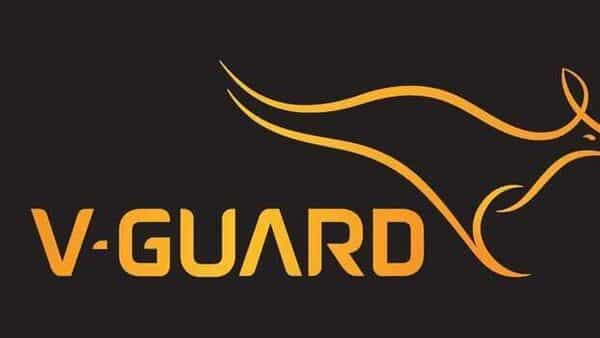[ad_1]
“What brings you here?” the hotel manager asked the customer.
“A trade fair”.
“We will accept only cash,” the manager told the guest.
In fact, all visitors to the hotel can see a notice pasted on the reception wall on two A4-sized papers. “Dear customer,” the notice, sandwiched between a wall clock and a ‘No Smoking’ sign, read. “We are not accepting any pre-paid bookings of Oyo due to non-payment of amounts by Oyo. We accept ‘only pay at hotel’”.

View Full Image
The hotel’s owner, Vishamber Shewakramani, had signed up with Oyo for a five-year lock-in contract with a minimum guarantee in 2019. This meant that the hotel could make a minimum revenue, irrespective of occupancy. Oyo made such agreements with thousands of hotels. All went well till the pandemic struck—people stopped both business and leisure travel. The hospitality industry, including hotels and restaurants, went into a downward spiral. They faced high fixed costs but had no business for many months.
Oyo terminated the minimum guarantee contracts in 2020 invoking the force majeure clause—one that removes liability for unforeseeable catastrophes. But hundreds of hoteliers from across the country filed claims running over ₹220 crore against Oyo for breach of contract and unpaid dues.
Oravel Stays Ltd is now headed for an initial public offering (IPO). The company is therefore keen on cleaning up its act. It has been trying to settle disputes with hoteliers selectively, through arbitration. For instance, in July 2021, it arrived at an out-of-court settlement with Rakesh Yadav, a hotelier who had filed a case against Oyo at the National Company Law Tribunal for ₹16 lakh in unpaid dues. According to one person familiar with the cases, Oyo has settled cases with 50-60% of the hotel partners who filed claims.
Settling such disputes is an imperative for Oyo considering that industry bodies such as the Federation of Hotel & Restaurant Associations of India (FHRAI) have been lobbying to stop Oyo from launching the IPO. Recently, the federation wrote to the market regulator, Securities and Exchange Board of India (Sebi), alleging that “Oyo is responsible for the systemic depredation of the budget segment hotel business”.
“Disagreements or litigations with patrons constitute less than 0.25% of our 170,000 storefronts (hotels and homes) globally. A lot of these originated during the tumultuous covid period. We have been working hard to settle these through mediation, arbitration, etc. and have seen steady progress. In most such cases, the patrons have started working with us again,” an Oyo spokesperson told Mint.
Hoteliers were offered different amounts as settlement, two hoteliers said, asking not to be named because of confidentiality agreements. One hotelier said he was offered 10% of the claim amount. A second hotelier said Oyo paid up to 40%. Oyo did not comment on the range that it has offered to hotels as settlement.
Indeed, Oyo has settled with Shewakramani, too. But now, he has another grouse. He is upset with the way Oyo prices rooms—below a ‘floor price’, or the lower limit for a hotel room. This, in short, is Oyo’s next challenge to overcome.
Revenue vs price
Oyo frequently compares itself to Marriott International, the multinational hospitality giant with 30 brands and over 8,000 properties in 139 countries. And while Oyo brands itself as the ‘world’s leading chain of hotels and homes’, the startup is not strictly an operator. Oyo provides a platform to onboard partner hotels, rebrand them, drive sales and manage bookings and revenue. It also provides tech consumer support.
Post the covid fiasco, Oyo shifted focus to revenue share arrangements instead of the minimum guarantee contract.
In May this year, Shewakramani entered into a one-year marketing and operating consulting agreement contract with Oyo for Rajdoot Hotel. Under such contracts, Oyo charges a commission—between 20% and 35%—for marketing the rooms. For hotels that are in prime locations and are easy to discover, the commissions charged are usually less. The company’s artificial intelligence (AI) engine prices the rooms in a way that ensures volumes. Besides this commission, Oyo also charges for other value-added services.
“They are able to push customers to us because they are giving away our rooms at any price,” Shewakramani complained.
While his hotel occupancy has increased because of the discounting, the total amount of sales booked has not increased substantially. “This has hit our profitability as the increase in occupancy adds to the cost,” the hotelier said.
Other hoteliers too have similar complaints—they have little control over how they price their room inventory once they sign the marketing contract.
The Oyo spokesperson clarified that the company encourages hotels to look at the total revenue it is able to drive instead of just looking at the floor price. A hotel can attract a much larger customer pool through what is known as ‘dynamic pricing’. Often used in sectors such as aviation, this strategy allows a company to quickly adjust fares in response to demand or market conditions.
“The agreement with hotels doesn’t have any ‘floor price’ commitment. Since we have a revenue sharing arrangement, it’s in both the hotels’ and Oyo’s interest to charge the fair amount a customer feels justified to pay,” the spokesperson said.
The spokesperson added that with every passing month, more and more hoteliers are “reverting back to the higher total revenue mindset”.
But some hoteliers Mint spoke to weren’t sure just yet. “The whole agreement with Oyo must change. It is too one-sided. We will treat them (Oyo) as any other online travel aggregator sending traffic to us. They will be the same as a Booking.com or a Goibibo or a Makemytrip for us,” a hotelier who didn’t want to be identified said.
The cost imperative
Oyo, meanwhile, is cleaning up its books. It is finding ways to cut costs while improving margins.
On 3 December, the company said it was terminating 600 employees in technology roles and hiring 250 in sales and for managing hotel relationships.
Oyo reported a gross profit margin of 41% in the first half of 2022-23, up from 9% in 2019-20, the company disclosed in a 28 November filing with Sebi. A significant portion of its fixed costs fell when it ended the minimum guarantee contracts. This is why Oyo reported higher margins over the last two years, a person in the know, who didn’t want to be identified, said.
Overall, Oyo’s losses narrowed to ₹747 crore in the first half of 2022-23 from ₹801 crore in the year-ago period. On a full year basis, the company’s losses narrowed to ₹1,940 crore in 2021-22 from ₹3,945 crore the year before.
The expectation is that its employee stock ownership plan (esop) expenses will reduce over the next two years, which will reduce its losses. Also, one of the objectives of the IPO is to retire loans, which will take care of the interest payments, thus improving profitability.
According to the Oyo’s draft red herring prospectus filed on 1 October 2021, it earmarked ₹2,441 crore for prepayment or repayment of “certain borrowings”. Another ₹2,900 crore was earmarked for funding the company’s organic and inorganic growth initiatives.
A Fitch Ratings report in June assigned a B- rating (down from B) on Oyo’s $660 million senior secured term loan facility that was raised in 2021. It is due in 2026. The Fitch report states that it expects “Oyo will likely achieve meaningful EBITDA (earnings before interest, taxes, depreciation, and amortization) profit only in FY24″ compared to its previous expectation of 2022-23.
Revenues of the future
Oyo’s revenues more than halved between 2019-20 and 2021-22, underlining the impact of the pandemic on the hospitality industry (see chart). The first half of this year has been encouraging but the company has quite some distance to go before it can catch up with its pre-covid revenues of ₹13,168 crore in 2019-20.
Where will its future revenues come from?
The hotels business in India still generates the bulk of its revenue and this is where Oyo wants to invest further and rope in new partners. Overseas, it has identified Indonesia, Malaysia, and the homes business in Europe as areas of growth.
Some venture capitalists, meanwhile, remain hopeful—the company is in a good space, they say.
“Tough to comment on how it will do for investors, but there is a business here. And if there is enough time, it will be a meaningful one,” Anand Lunia, co-founder of venture capital firm India Quotient, said.
Lunia mentioned Oyo as one of the firm’s ‘anti-portfolio companies’—a phrase used by VCs to characterize companies they missed investing in for various reasons. A few years back, when India Quotient had an opportunity to invest, it stayed away. One of the concerns was founder Ritesh Agarwal’s ability to execute.
“Yes, everyone can be better. But let’s not forget how life was before Oyo,” Lunia said. “Oyo helped set a minimum bar one could expect from a budget hotel room. As consumers got used to good air-conditioners and mattresses in their own homes, the low-end hotels did not keep up. Oyo created this whole category where hotels had to up their game. In cities, it solved the need for couples’ privacy and predictability for tourists,” Lunia added.
But Oyo’s use cases today have shot far beyond what Lunia mentions. People book rooms through Oyo because they are getting their houses painted; some want to watch football matches in groups; many stay to avoid intra-city overnight travel. Students looking to take examinations in smaller cities and sports tournaments also contribute to spikes in customer bookings. Business travel is an important segment, too, with the Oyo platform being used by many small and medium enterprises, startups, and travel management companies.
Resizing expectations
While the rebound in the hospitality business this year is good news, Oyo has challenges to overcome on the valuation front as well. How will it price its IPO given the year-long tech rout?
When the company first filed its draft papers in October 2021, it expected a $12 billion valuation. This appears bloated right now.
In November, a report in The Economic Times stated that the Nomura-Mizuho consortium wrote down $850 million of a $2.2 billion loan it had lent to founder Ritesh Agarwal. About $1.8 billion of this loan was linked to the company’s valuation—$9.7 billion in 2019.
Agarwal had taken the loan via RA Hospitality, a vehicle used to buy back shares owned by Sequoia Capital, Lightspeed and some other investors. Agarwal and RA Hospitality together own around 31% stake in Oyo. With the write-off, the valuation today would fall to $5.8 billion.
Then, a Bloomberg report in September stated that investor Softbank, which owns 46% stake in Oyo, cut the value of its stake. The Japanese investor also valued the company at around $5.8 billion.
Considering that Oyo has shrunk in revenues since 2019-20, it cannot expect to command a multiple that hyper growth startups do, market watchers said. “There is an expectation that the company’s valuation might improve after its Q2 results,” a person familiar with the company’s strategy said, adding that Oyo is currently trading at a valuation of $6.5 billion in the grey market.
Oyo declined to comment on its expected IPO pricing and did not make its founder Agarwal available for an interview. Nonetheless, multiple people watching Oyo said that it needs to hurry up on its clean-up act. Investors are watching its path to profitability rather closely—there is little appetite either in the private or the public markets to fund loss-making companies.
Download The Mint News App to get Daily Market Updates & Live Business News.
[ad_2]
Source link
John Miller has been writing about science, gaming, and tech culture for over a decade. He’s a top-rated reviewer with extensive experience helping people find the best deals on tech and more.



